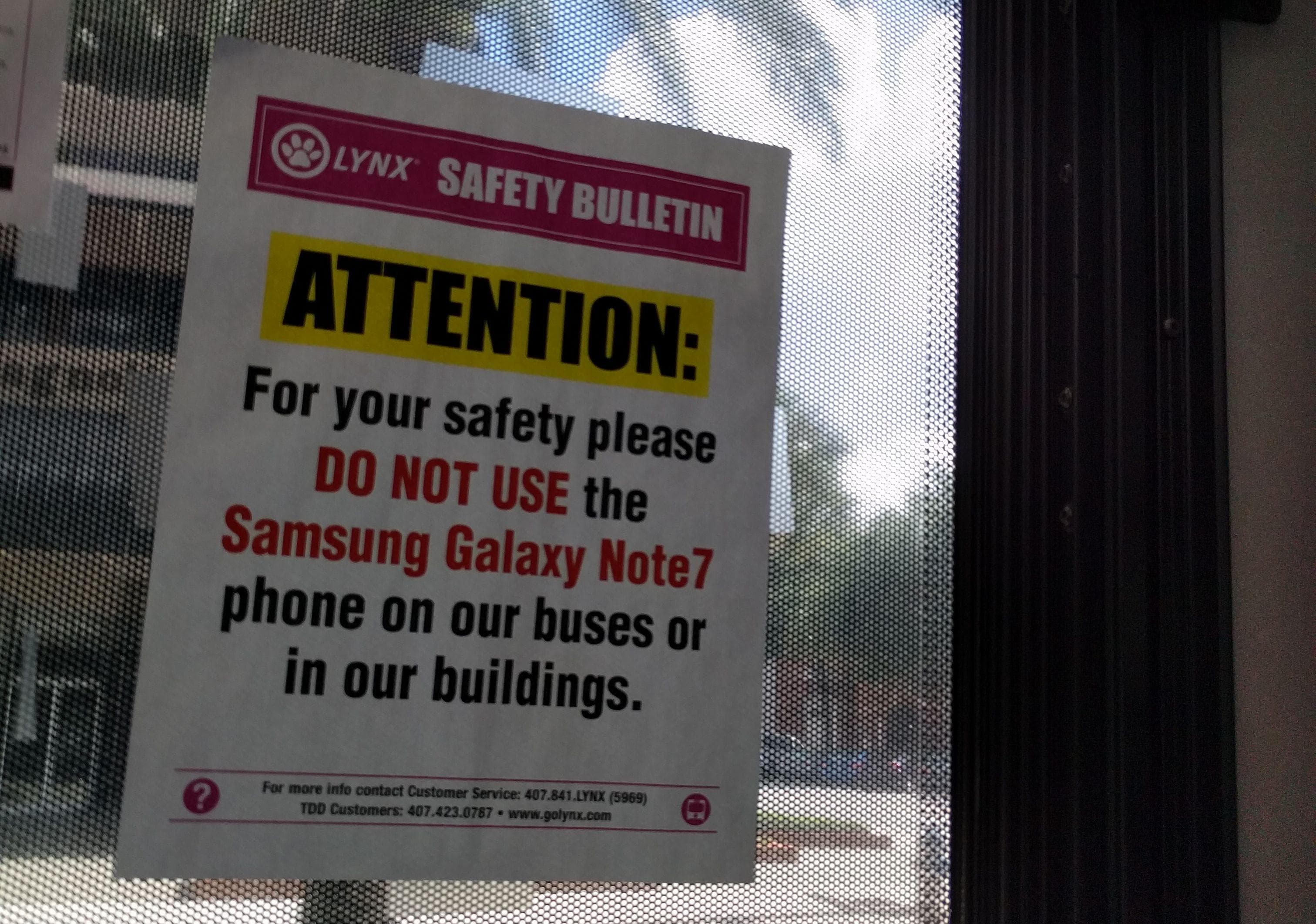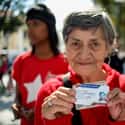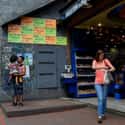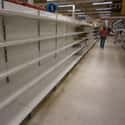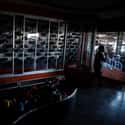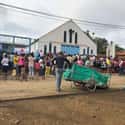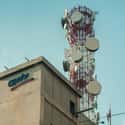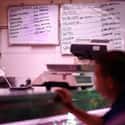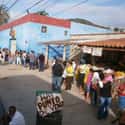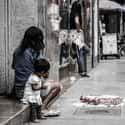-
(#1) Citizens Have To Carry A 'Fatherland' Card
Back in April 2008, Justice Ministry officials of Venezuela went to Shenzhen to learn more about China's national identity card program. Ten years later, the South American country rolled out their own version of the card, called the "carnet de la patria," or "fatherland card."
Working with ZTE, China's largest tech companies, the Venezuelan government created a mandatory identity card that can track things like a person's birthday, political affiliation, medical history, and financial stance.
So far, about half the population has received one of these fatherland cards. Some believe this is President Nicolas Maduro's way of maintaining control, and human rights groups are concerned about the potential for mass surveillance.
-
(#2) A Carton Of Eggs Costs More Than $15
NBC News writer Mariana Zuñiga covered the daily struggles of average Venezuelans in an article published in March 2018. One particularly startling story involved a Caracas woman buying eggs. The woman previously spent 480,000 bolívars (or $14.40) for a single carton of eggs, only to find they're more expensive than before:
She picks it up, believing the price is the same, but the clerk tells her that the price has increased, to more than she can afford on her salary as an elementary school teacher. Luckily, her wage combined with her husband’s still allows her to complete her weekly purchases.
-
(#3) Basic Necessities Are Often Nonexistent
Journalist Nayrobis Rodriguez, in a piece published by Al Jazeera in May 2018, gave readers a glimpse into her day-to-day life in Venezuela, including a week-long search for toilet paper. She writes:
My search began on Tuesday morning: one, two, three, four shops. In every one, I got the same response: "We don't have any toilet roll, and we're not going to have any in the next few days."
No one could explain why there was no toilet roll, just that there wasn't any, just like there weren't any other toiletries, such as shampoo, conditioner, soap, or toothpaste.
Rodriguez eventually waited two hours in line to purchase a single roll of toilet paper from a shop in Cumaná - only to go home empty-handed. By sheer luck, she finally found what she needed. Seven days later, when her sister was first in line at a large market selling four-packs of toilet paper, she ultimately paid a hefty sum - "the equivalent of more than 86% of the monthly minimum wage in Venezuela."
Some families have to choose between hygienic products and food. As NBC News writer Mariana Zuñiga reported, one man's weekly salary was only 50,000 bolívars more than a soap bar. To make do, he watered down leftover shampoo for use as body soap.
-
(#4) Power And Water Outages Occur With A Debilitating Frequency
In a Washington Post piece from April 2018, Carlos Hernández Blanco described internet, power, and water outages as weekly - if not daily - occurrences. During the latter, he and his family had to line up with buckets in tow at a water faucet down the street to stock up on reserves. Blanco states how having multiple buckets of water around the house is "just common sense."
Blanco counts himself lucky concerning his functioning electricity - outages "usually last about an hour, and occur weeks apart." For other regions in Venezuela, however, outages last for weeks. Meanwhile, other communities lack the luxury of water and electricity altogether.
-
(#5) Many People Take Animal Medication For Their Ailments
For the Bloomberg series "Life in Caracas" (Venezuela's largest city), writer Noris Soto details how far many citizens go to obtain medication for health conditions. Because the state regulates pharmaceutical supplies, drugstores often lack necessities (or virtually any stock).
For this reason, many people turn to animal medication. Soto writes how inflation on the black market drives people to veterinarians and pet stores in search of drugs originally prescribed for other mammals:
Pet drugs can be quite similar to those fashioned for humans - if, as local vet Fernando Navia put it, “there are good standards and good manufacturing.” In Venezuela, those are big ifs. Even in the best of cases, there can be vast differences in dosages and inactive ingredients. But the crucial factor is that animal meds aren't imported through government-regulated channels and so are, relatively speaking, widely available.
Most doctors know their patients turn to pet medication, and while they advise doing this only as a last resort, they recognize animal pills work better than no pills.
-
(#6) The Internet Runs Slowly And Falls Under Heavy Regulation
In his April 2018 Washington Post article, Carlos Hernández Blanco writes about CANTV, the state-owned-and-operated internet service provider for all of Venezuela:
It used to belong to Verizon and worked reasonably okay, but in 2007, [then-President Hugo] Chávez decided to expropriate it to strike a blow against international capitalism and to bring the internet to the masses (or some such).
Our internet service now costs almost nothing (I’ll give them that), but it’s also among the slowest in the world and completely unreliable. In some communities, people steal internet cables to strip and sell them as scrap metal. Since CANTV simply can’t afford to replace them, those people are left without internet access.
Moreover, current president Nicolás Maduro keeps a tight lid on what Venezuelans access online - stiff regulations Vice News writer David Gilbert compares to the "repressive online censorship of China and Iran." In June 2018, Maduro also blocked all access to the Tor network - meaning no one could access the encrypted network to browse the internet undetected. Tor previously allowed Venezuelans to circumvent the governmental restrictions.
-
(#7) Deli Scales And Registers Can't Handle The Inflated Prices
If you want to buy ham at a Venezuelan deli, you're out of luck. In March 2018, Patricia Laya wrote for "Life in Caracas," describing how many shop owners stopped ordering this particular meat because their scales were unequipped to measure it out - meaning, there weren't enough numbers on the digital readout to support ham's high price (about 1,480,000 bolívars per kilogram, at the time of her writing).
Delis aren't the only businesses affected either. Even those with the means to buy a new pair of sneakers - or to do so on credit - would likely have to ring up the purchase as multiple transactions, given some older card machines can't fit the inflated prices on the screen.
-
(#8) Many Citizens Rely On A Barter System
With cash reserves scarce and - in many cases - worthless, and since many Venezuelans do not have bank accounts and prefer not to use cryptocurrencies, people rely instead on bartering and trading. Speaking to The Guardian, Geoff Ramsey, an assistant director at a Washington-based think tank, has said:
The paradox is that this is a country undergoing a deep inflation crisis and yet nobody actually has any cash... You’re seeing wealthy people pay for parking with granola bars.
Fortune writer Chris Morris calls the bartering the new "official" Venezuelan currency. He notes how one can observe the system in practice across the country, such as restaurants trading foods for napkins.
-
(#9) Unemployment Forces Numerous Venezuelans Into 'Informal Work'
In March 2017, Reuters writer Eyanir Chinea reported how, over the previous 18 months, Venezuela lost over 1 million private sector jobs. A survey also revealed, of those polled, only 28% still held private sector jobs, while only 27% retained their government employment. Those left without work made ends meet by selling coffee and cigarettes on the street, or else took on other, infrequent freelance work without benefits.
The oil industry remains the country's most lucrative - the rich reserves in Venezuela keep the economy from crumbling entirely. But this may soon change, as Fabiola Zerpa notes in a February 2018 article for Financial Post: numerous oil workers are too hungry and malnourished to continue working, forcing them to walk away from their jobs.
Still, others walk out or skip work in the pursuit of food, since, as Mariana Zuñiga points out for NBC News, the average wage among Venezuelans barely affords food and other necessities. In addition, people generally only obtain what they need by waiting in long lines for hours.
-
(#10) Some Citizens Professionally Gamble To Make Ends Meet
Given the job market's state and the need for higher bolívar notes to afford basic necessities, numerous Venezuelans rely on various forms of gambling to keep afloat. A favorite among locals is Los Animalitos, AKA Little Animals, a game reminiscent of roulette. Reuters writer Andreina Aponte reported in 2017 how one woman occasionally makes 50,000 to 60,000 bolívars at a time playing the game.
Carlos Hernández explained how the game works via the Caracas Chronicles:
There’s a little board with 38 “little animals” on it.
Each animalito has a number. If you pick the right one, you win: the payoff is 30 times your original bet. Put 1,000 bolívars on the little camel, and if it shows up, you go home with 30,000 [bolívars]. You can bet on as many animals as you want.
Hernández stated how the game is so popular, Animalitos lottery tickets are available for purchase almost everywhere throughout the city.
-
(#11) Lower Bolívar Bills Are More Valuable As Crafting Supplies
Due to hyperinflation, Venezuela's primary currency, the bolívar, holds little value. President Nicolás Maduro devalued it further in August 2018, slashing off five zeros from the currency with a plan to balance it with the petro, the country's cryptocurrency which many experts say is a "scam." As Sarah Gonzalez, writing for NPR, puts it, "Think of Venezuela's currency as an unwrapped chocolate bar. The minute it touches your hand, it's melting."
Thus, some Venezuelans put the virtually worthless bills to good use. The Associated Press reported on Richard Segovia, who fled his dead-end warehouse job in Venezuela and relocated with his family to Colombia. Not knowing what to do with his stacks of bolívars, he began folding the bills into intricate origami sculptures, purses, wallets, and other wares.
He uses mainly 50 and 100-bolívar notes, with some of his crafts comprising bills of 1,000 or more, totaling a cost of about 50 cents. And yet, Segovia garners anywhere from $10 to $15 per item. He sends most of his earnings back to his family in Venezuela.
-
(#12) Hunger And Starvation Run Rampant
Journalists Fabiola Zerpa and Noris Soto, along with photographer Fabiola Ferrero, documented rampant malnutrition and starvation in their Bloomberg piece "From 172 to 115 Pounds: The Faces of Venezuelan Hunger." The article features before-and-after crisis photos of "blue collar" citizens, demonstrating their drastic weight loss over a relatively short period.
Each photo has a write-up of the individual, detailing the poor diets endured by most Venezuelans. One woman, Yetsi Martinez, relies on government food handouts, consisting of "mostly cheap vegetables - corn, celery, yucca" to feed her family. Before the economic collapse, Martinez's family enjoyed healthy meals of steak, chicken, eggs, and other nutritional foods.
Meanwhile, Alexander Lopez goes without eating most days so he can feed his daughters. His hunger became so severe at one point, he blacked out on a subway, only to wake up to medical care.
The BBC also covered the hunger crisis in Venezuela, featuring harrowing footage of dangerously malnourished children and people digging through trash to find sustenance.
-
(#13) Nightlife Remains Almost Nonexistent
Caracas once boasted numerous options for late-night entertainment, but as the financial crisis began to wreck the entire country, options disappeared. Mirelis Morales Tovar wrote for CityLab in July 2016:
In the Venezuelan capital, it was common for people to bounce from one place to another all night, and end the party at dawn eating at one of the city's many 24-hour arepas stands. But with mounting insecurity, a high cost of living, and power outages, that has all changed. Today, nightlife options have been reduced to evenings at friends’ houses, where everyone brings food, drinks, and - if they can - water or toilet paper.
Tovar goes on to explain how nightclubs, bars, and late-night movies were widely available throughout the city, but as the bolívar began to lose its value, citizens could no longer afford to go out, and business owners could not afford to stay open.
Moreover, rates of criminal activity escalated, making it unsafe to go out at night, even for those who could still afford to do so. Malls became an affordable and popular alternative, but after President Nicolás Maduro's government ordered all stores to close at 7 pm to save on electricity costs, this option disappeared, too.
New Random Displays Display All By Ranking
About This Tool
Venezuela, a South American country rich in crude oil, but has become a hell on earth. Due to the extreme economic policies of the government, the country is erupting the worst energy shortage and economic crisis in history. The hungry people have even begun to hunt stray cats, dogs, pigeons, and even mice to survive. Due to the lack of food and basic medical treatment, people are struggling to die. The government even made the situation worse.
Ironically, Venezuela is not a barren country. The country's crude oil reserves even exceed those of rich Saudi Arabia. However, due to the failure of the government's economic policies and the impact of falling global oil prices, the originally beautiful and rich countries have fallen into a huge economic disaster. The random tool describes 13 facts about how it like living in Venezuela.
Our data comes from Ranker, If you want to participate in the ranking of items displayed on this page, please click here.




